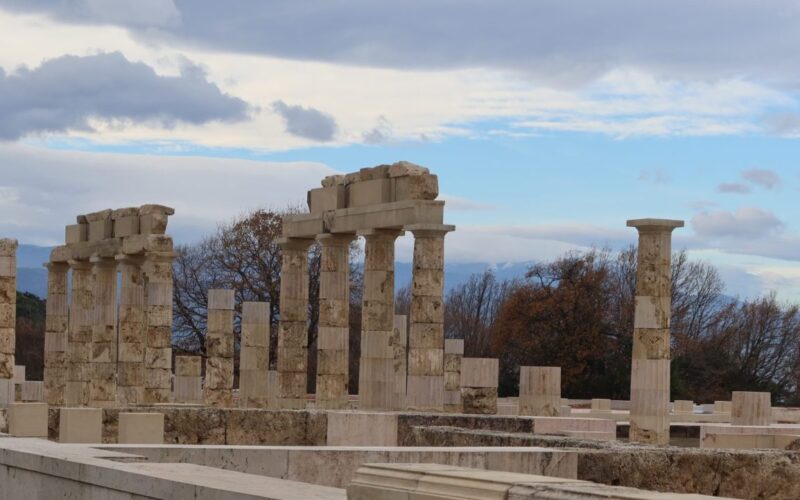January 15, 2024: Greece has recently reopened the ancient Palace of Aigai, a historic site where Alexander the Great was crowned King of Macedonia over 2,400 years ago. After a prolonged period of closure for restoration, this monumental palace, also known as the Royal Metropolis of the Macedonians, has once again opened its doors to visitors, offering a glimpse into classical Greece’s rich historical tapestry.
The palace, covering a vast expanse of approximately 15,000 sq m, was primarily constructed during the 4th century BCE by Philip II of Macedonia, the father of Alexander the Great. It played a pivotal role in classical Greece, witnessing the crucial moment when Alexander ascended to the throne following his father’s assassination.
Greek Prime Minister Kyriakos Mitsotakis, present at the opening ceremony, highlighted the significance of the Palace of Aigai in initiating Alexander’s remarkable campaign. Alexander the Great’s conquests left an indelible mark across Greece, Iran, Egypt, and stretched as far as northern India and central Asia, marking the beginning of the Hellenistic period.
Despite its historical prominence, the palace faced destruction at the hands of the Romans in 148 BCE, followed by subsequent looting over the years. The extensive restoration project, undertaken by the Greek Government with support from the European Union and an investment exceeding 20 million euros, spanned 16 years and proved to be a formidable task.
Reports indicate that the meticulous restoration involved excavating the site, documenting and conserving discovered artifacts, and refurbishing 1,400 sq m of mosaics, marble flooring, and columns while preserving the general appearance of the ruins. Prime Minister Mitsotakis acknowledged the global importance of the restoration efforts, emphasizing the universal value of such monuments.
The restored Palace of Aigai stands as a testament to the enduring legacy of Alexander the Great and the rich cultural heritage of ancient Greece. Mitsotakis stressed the responsibility of custodians to protect, promote, and highlight these historical sites, which transcend local boundaries and become part of humanity’s shared cultural heritage. As the palace reopens its gates, visitors can once again connect with this remarkable piece of history, experiencing the grandeur of a bygone era and the indomitable spirit of Alexander the Great.
